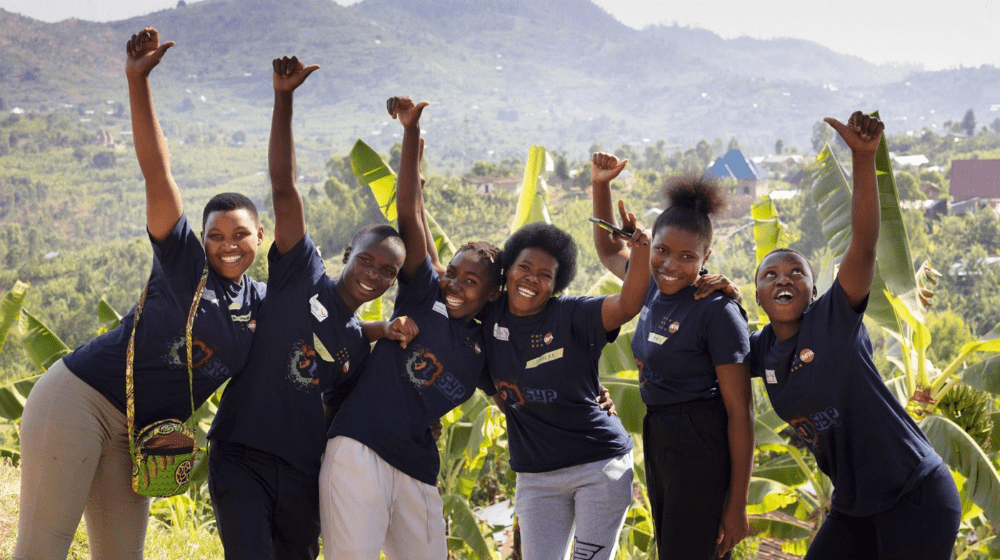
A personal journey: Striving for trans pride and indigenous women’s rights in Peru
When Gaby, an indigenous transgender woman, returned to her hometown in #Peru she saw how men would hit women. See how she now advocates for equality for women and LGBTQIA+ people, with support from @UNFPA—the @UN sexual and reproductive health agency: https://unf.pa/pjs
A personal journey: Striving for trans pride and indigenous women’s rights in Peru
Waking up to the sounds of the rainforest, Gaby Huite Tseje, 27, an indigenous Awajún woman, is pleased to be back home in Mamayaque, a remote town in Peru’s Amazonas region.
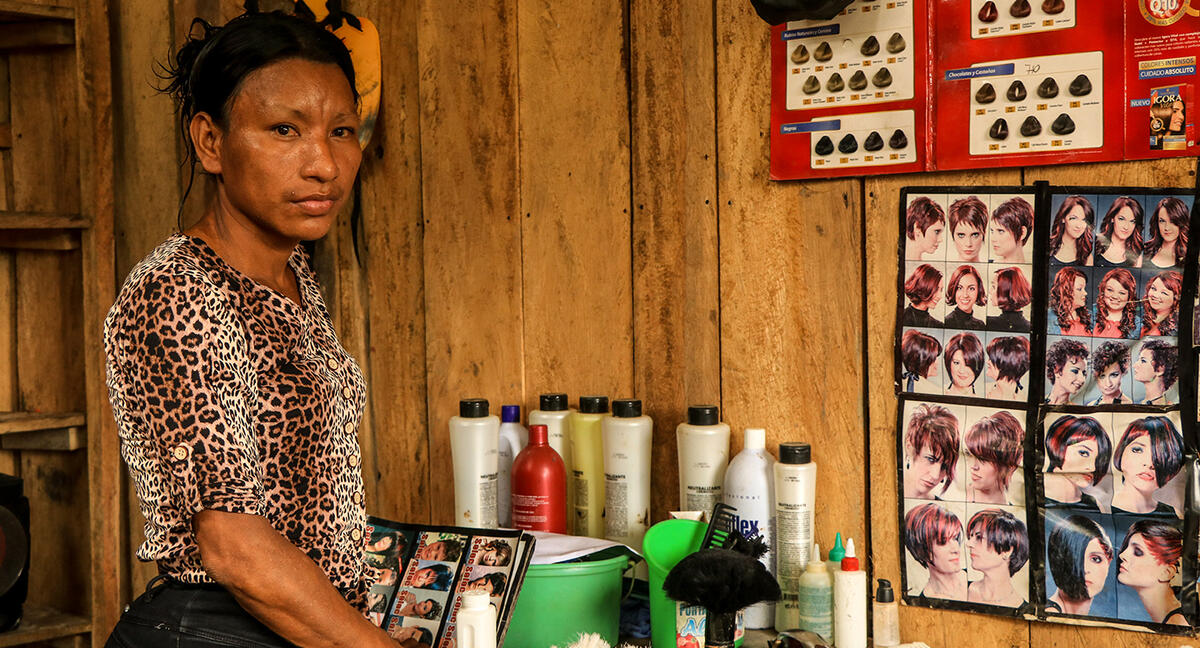
Gaby spent almost a decade in Lima and other cities, training and working as a hairstylist. She enjoyed developing her skills but faced many challenges, including stigma and discrimination because of her identity. “For me, as a transgender woman, it wasn't easy,” she says. “I had to endure insults and mistreatment just for being different.”
Back in Mamayaque, in the El Cenepa district of Peru’s Condorcanqui province, Gaby is fulfilling a childhood dream, running her own business as a stylist. Now, she is striving to reach another dream: equality for Amazonian women and the LGBTQIA+ community.
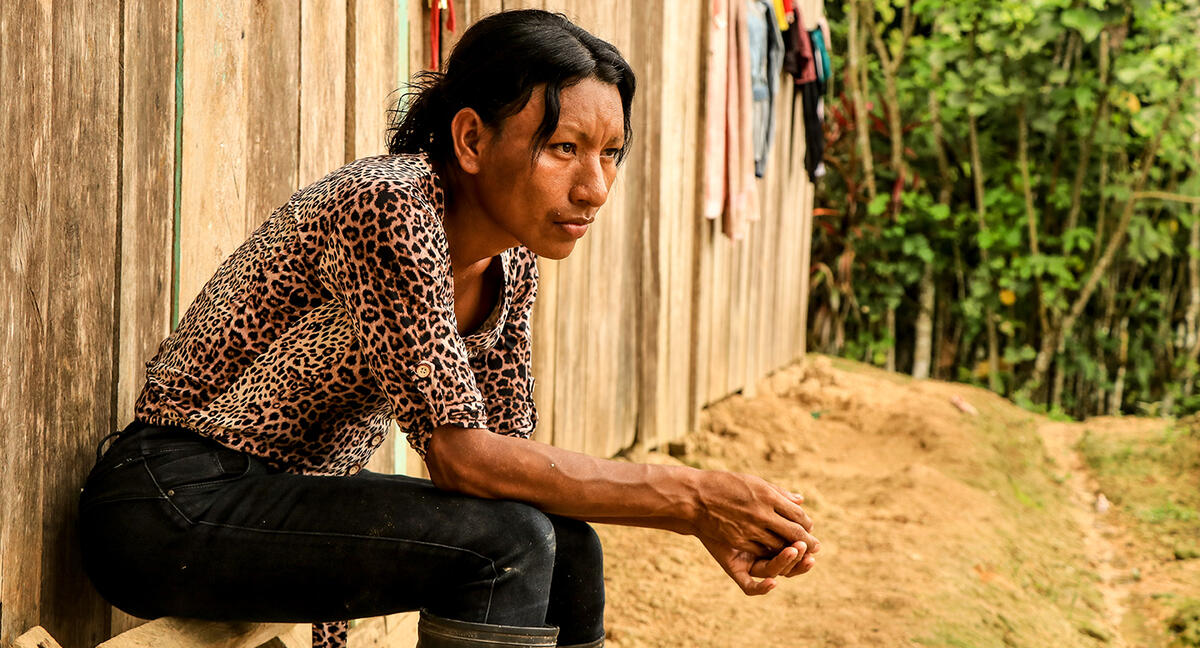
While Gaby receives love and acceptance from her family and a strong social circle – “I have many friends,” she says – the wider community is not always as welcoming to transgender people.
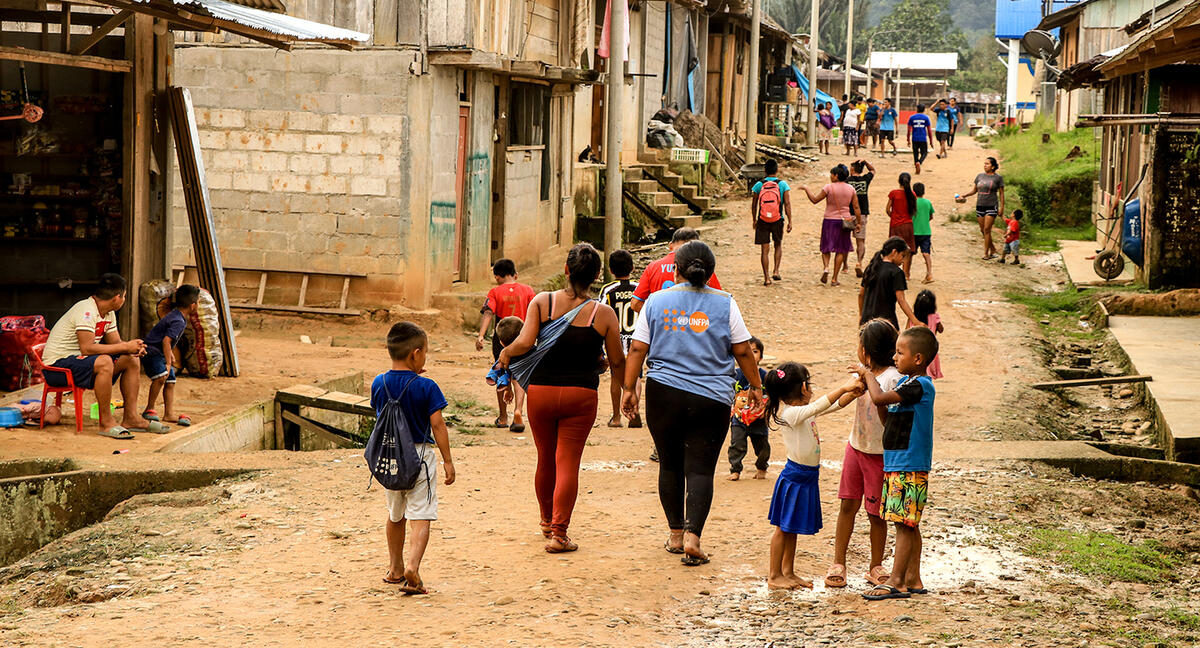
Huampami, the capital of El Cenepa, has gone to the extreme of banning LGBTQIA+ people from entering the town, using the threat of punishment, including thrashing. The leader of the community enacted the ban; the decision was published in a 2022 statement from the El Cenepa district council.
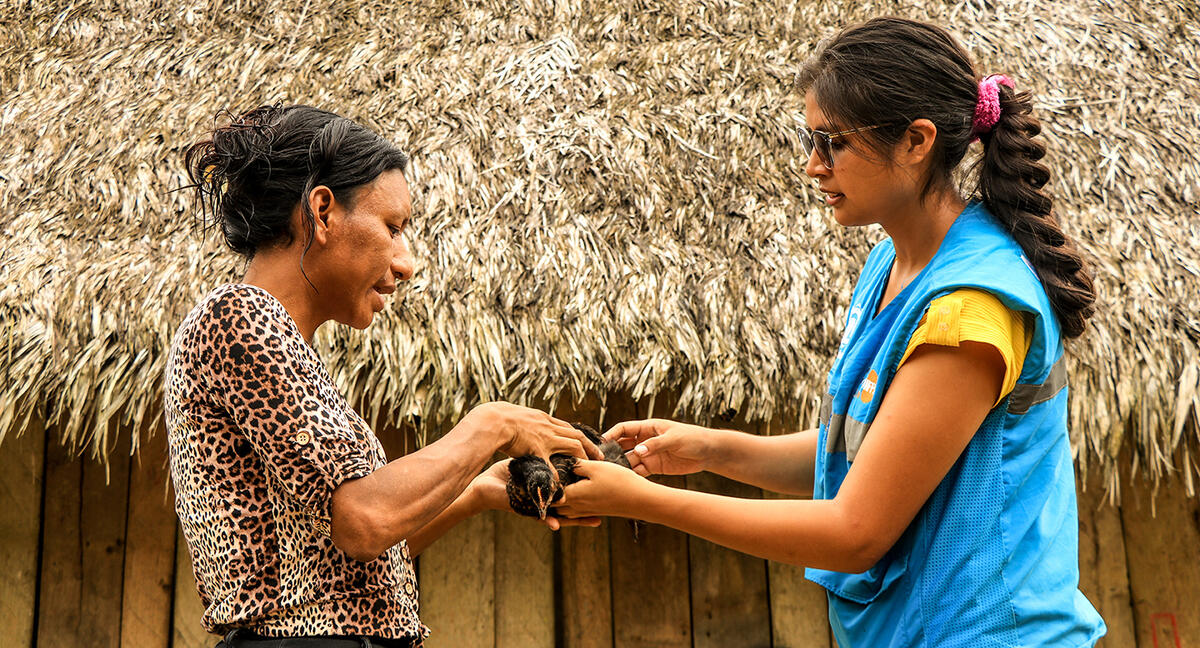
Gaby has received psychosocial support from UNFPA’s Nuwa Senchi project, attending group sessions designed to help form strong, supportive social networks. Nuwa Senchi means “strong woman” in Awajún.
The USAID-supported project aims to ensure that all indigenous Amazonian women and LGBTQIA+ people can access essential health services and protection from gender-based violence. Gaby is pictured above at home with team member Dafne Aquino.
In the Condorcanqui province, gender inequality can result in limited education and employment opportunities for women and girls and gender-based violence, carried out with impunity.
Recognizing the need for all local women to achieve equality, Gaby has now become a community advocate for the Nuwa Senchi project. “Here in the community, men hit women a lot,” she says. “Women must not be mistreated. If they know about their rights, they can more easily recognize if their partner is mistreating them.”
Gaby and her Nuwa Senchi team members are making strides, helping women and LGBTQIA+ people to access justice and to be safer and healthier. The teams include psychologists, lawyers, community outreach workers and other professionals. The teams take a survivor-centred approach, carrying out communication campaigns, sensitizing state and community authorities, and strengthening collaboration among institutions.
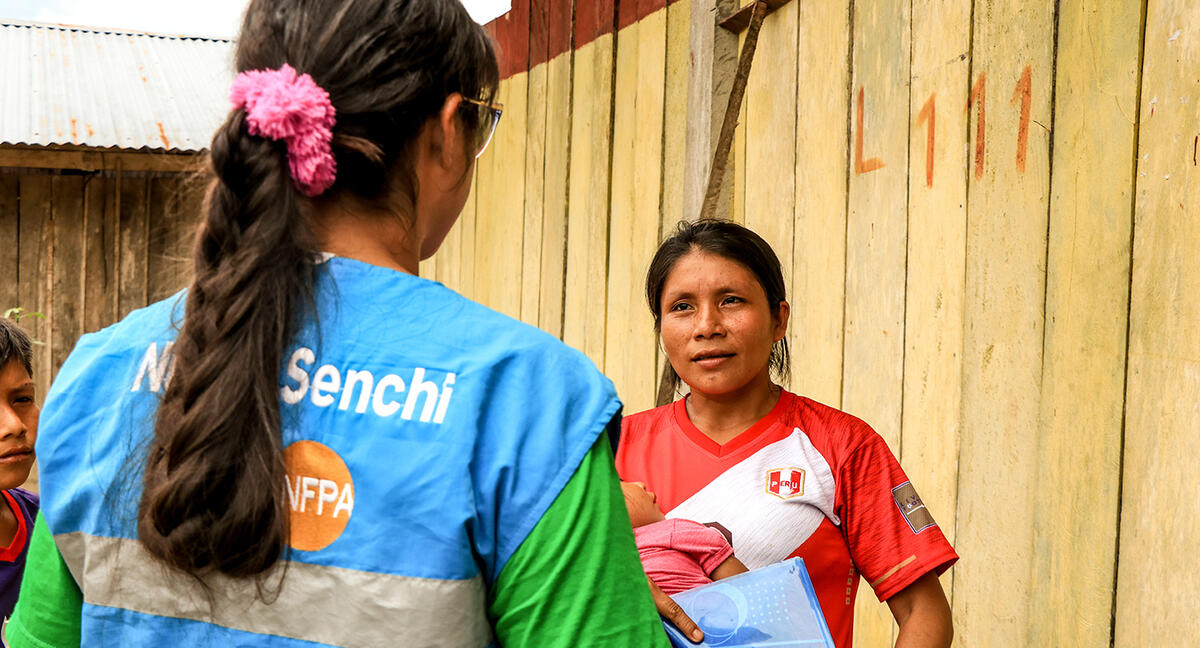
The reach of Nuwa Senchi is significant. Since September 2023, for example, the project has reached more than 13,000 people with messaging related to gender-based violence, through community outreach and training. Further, 724 survivors of violence have received assistance, and 392 have participated in psychosocial support sessions.
Team member Dafne is pictured above meeting with Isidora, a mother in the community, during an outreach session in Mamayaque. You can find out more about this powerful initiative here.
